Asking and Answering Questions About the Cosmos
UToledo astronomers are engaged with the most advanced terrestrial observatories and space-based telescopes in the world, supporting the groundbreaking research of the global astronomical community and exciting future generations of stargazers in the process.
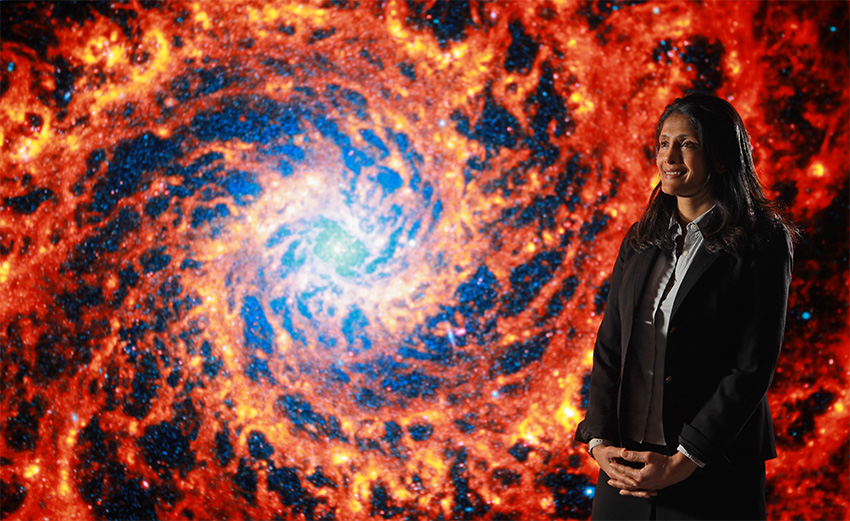
The community is invited to campus to experience the total solar eclipse on April 8 with a viewing event in the Glass Bowl.

UToledo ranked among the top ten institutions worldwide in successful proposals for the first cycle of scheduled observing time on the James Webb Space Telescope, positioning its astronomers among the first to access cutting-edge data that’s reshaping our understanding of the universe. Rupali Chandar, Ph.D., professor and associate chair of the Department of Physics and Astronomy, is at the forefront as principal investigator of two observation programs on the James Webb and a core member of the Physics at High Angular resolution in Nearby GalaxieS (PHANGS) international collaborative research program.
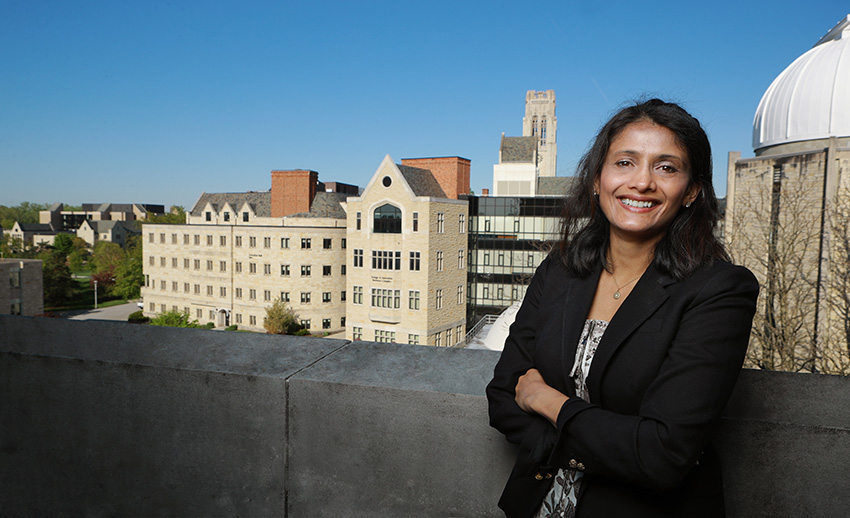
Since the James Webb Space Telescope launched in late 2021, a users committee has tackled questions like how to mitigate micrometeor risk and what’s fair when it comes to exclusive data access periods. Steering these conversations is professor and director of the Ritter Astrophysical Research Center J.D. Smith, Ph.D., in his second year as chair of the committee that acts as a liaison to the Space Telescope Science Institute.
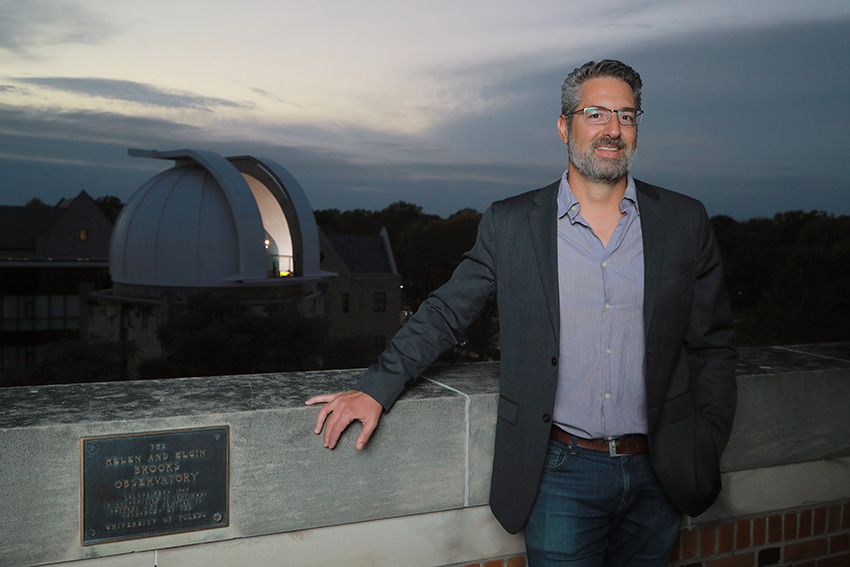
Michael Cushing, Ph.D., an astronomy professor and director of the Ritter Planetarium, was part of the team of astronomers who discovered the coolest class of brown dwarfs in 2011. His latest research into these substellar bodies is opening doors to graduate student Sam Beiler, who has had a front-row seat to some of the earliest data to come out of largest, most powerful and most complex telescope ever launched into space.
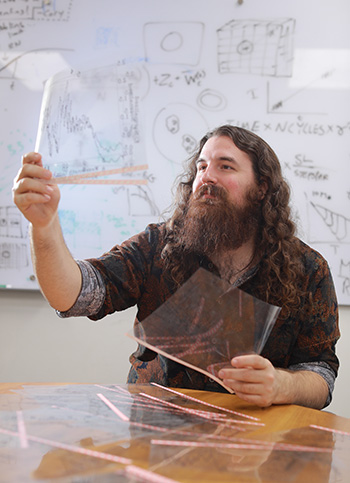
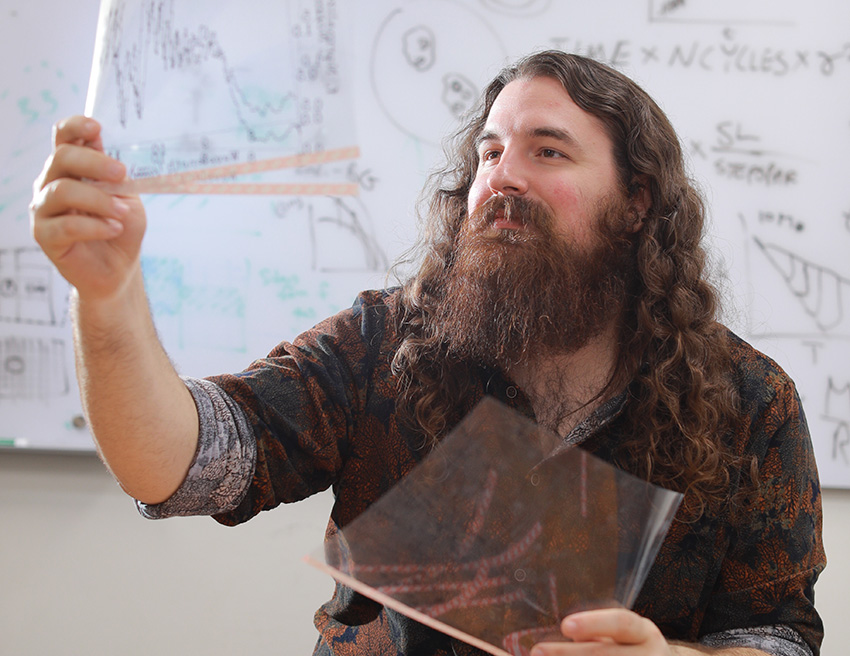
Galaxy evolution, particularly through the mechanisms of accretion and feedback surrounding black holes, is the research area of Anne Medling, Ph.D., an assistant professor of astronomy. Her latest investigations are supported by a National Science Foundation CAREER Award and a Research Corporation for Science Advancement Cottrell Scholar Award, both of which recognize early-career researchers and educators.
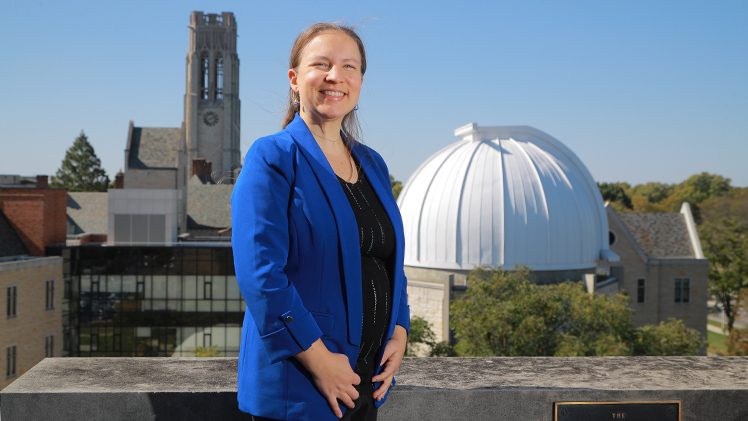
Student observing teams spend clear nights in UToledo’s Ritter Observatory, whose 1-meter Ritchey-Chretien reflecting telescope was recently refurbished. Each team consists of one graduate student and three or so undergraduate students who are encouraged to get involved in research as early as their freshman year.
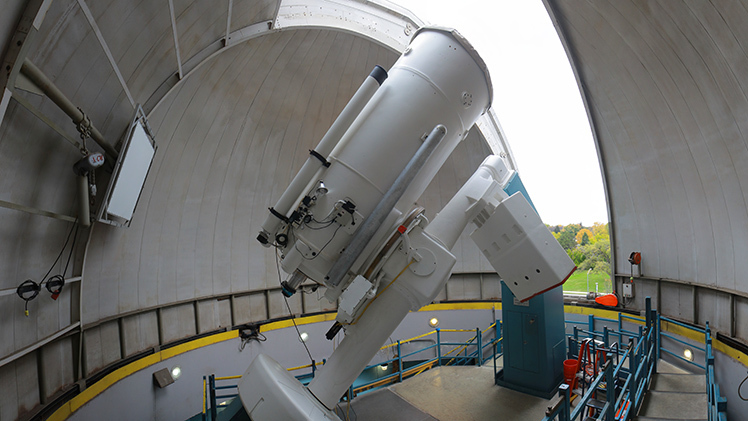
Milo Eckhardt, a junior studying physics with a concentration in astrophysics and a minor in mathematics, is an “eclipse ambassador” through a new NASA-funded program Eclipse Ambassadors Off the Path. It pairs undergraduate students like herself with eclipse enthusiasts in their geographic communities to engage those who live off the path of totality — work that’s gearing up ahead of the total solar eclipse that’s set to cross the contiguous United States, including Toledo, on April 8.
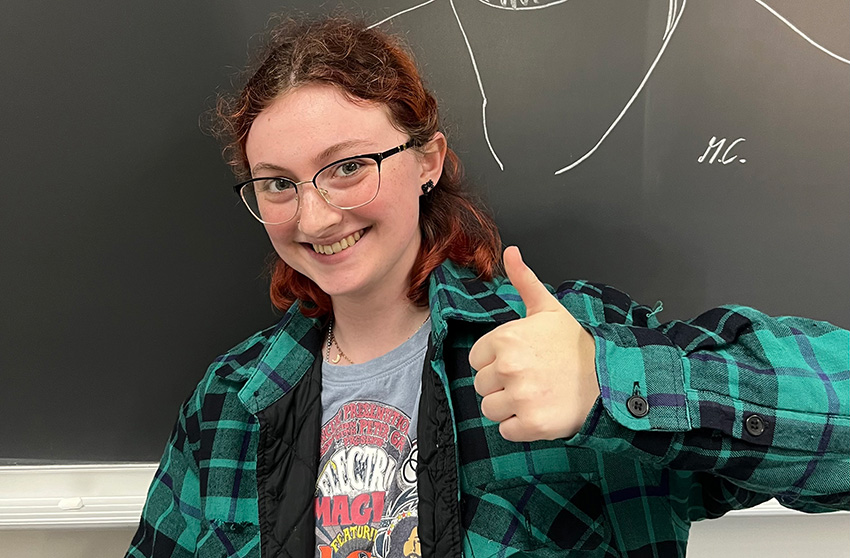
Student and citizen scientists across the country will take note of air temperature, ground temperature and cloud cover before, during and after the solar eclipse on April 8. The hands-on activity is typical of GLOBE Mission EARTH, a NASA-funded project led Kevin Czajkowski, Ph.D., a professor in UToledo's Department of Geography and Planning, that’s transforming the way science is taught in kindergarten through high school by engaging students in real scientific research.
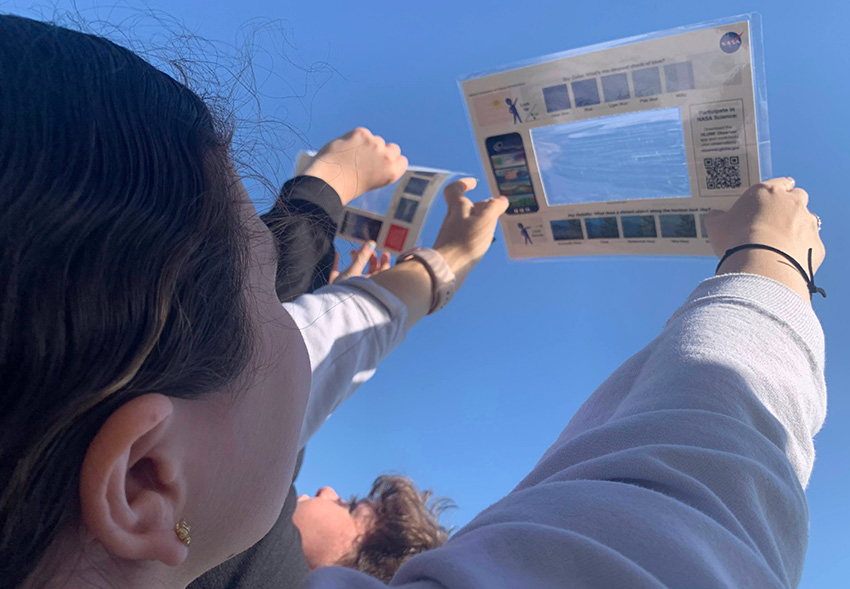
Learn More
- 13 ABC: Check 2017 Glasses Before Using for 2024 Eclipse
- Columbus Dispatch: We Asked Ohio Astronomy Experts What They’re Doing for the Eclipse. Here’s What They Said.
- UToledo to Host Community EclipseViewing Event on April 8
- 13 ABC: Spacing Out: Eclipse is Two Months Away
- The Blade: UToledo Research Team Watches First Images Arrive from Webb Space Telescope